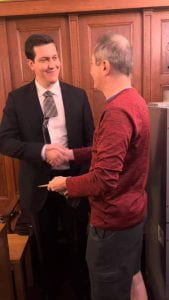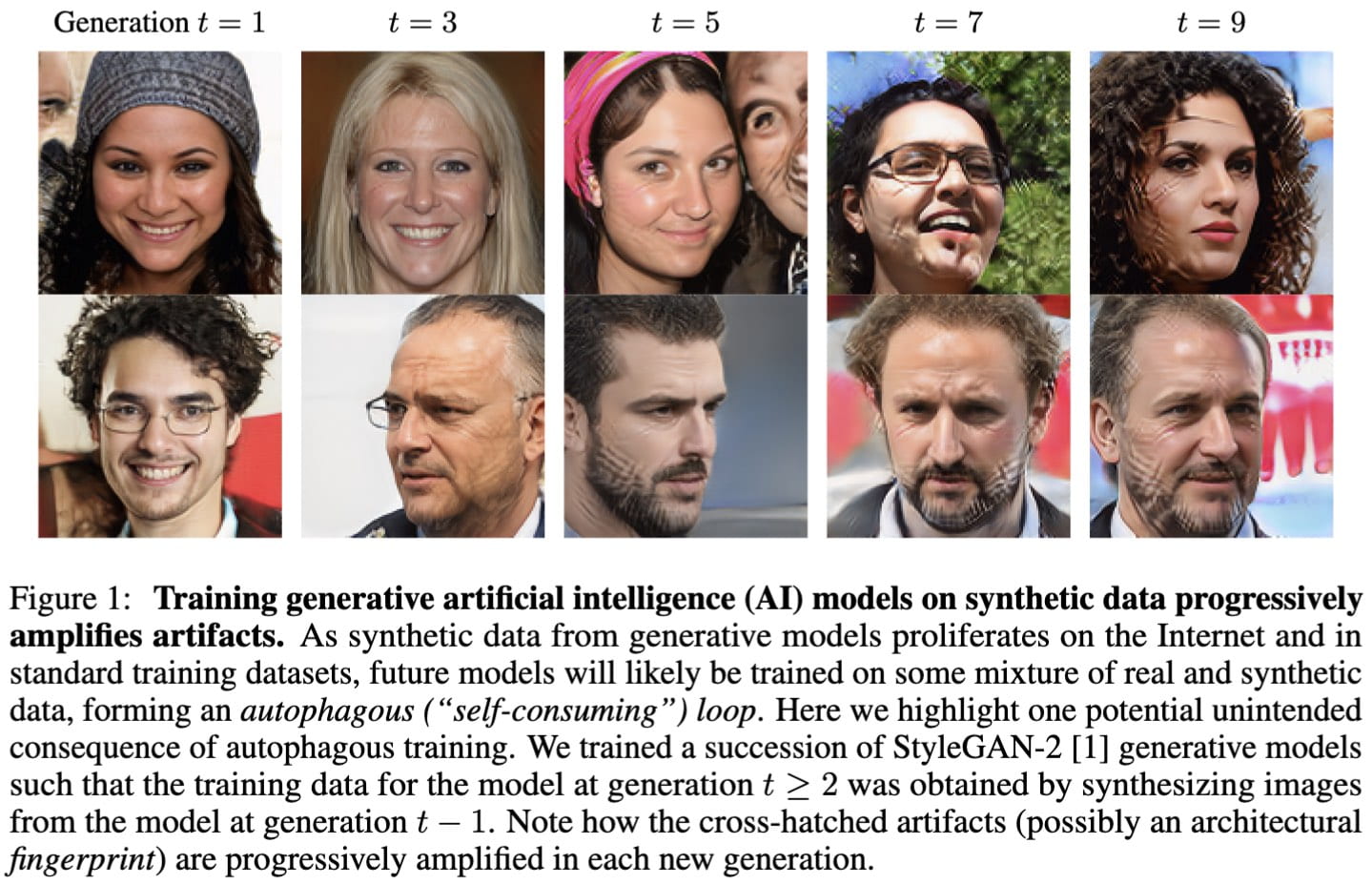
Rice DSP PhD Randall Balestriero (PhD, 2021) has accepted an assistant professor position at Brown University in the Computer Science Department. Since graduating, he served as a postdoc with Yann LeCun at Meta/FAIR and at GQS, Citadel.

Rice DSP PhD Randall Balestriero (PhD, 2021) has accepted an assistant professor position at Brown University in the Computer Science Department. Since graduating, he served as a postdoc with Yann LeCun at Meta/FAIR and at GQS, Citadel.
Rice DSP PhD and Valedictorian  Lorenzo Luzi (PhD, 2024) has accepted an assistant teaching professor position in the Data 2 Knowledge (D2K) Lab and Department of Statistics at Rice University.
Lorenzo Luzi (PhD, 2024) has accepted an assistant teaching professor position in the Data 2 Knowledge (D2K) Lab and Department of Statistics at Rice University.
Rice DSP graduate student Lorenzo Luzi successfully defended his PhD thesis entitled "Overparameterization and double descent in PCA, GANs, and Diffusion models".

Abstract: I study overparameterization in PCA and generative adversarial networks (GANs), and generative models in general. Specifically, I study models that can interpolate the training data. I show that overparameterization can improve generalization performance and accelerate the training process in several contexts. I study the generalization error as a function of latent space dimension and identify two main behaviors, depending on the learning setting. First, I show that overparameterized generative models that learn distributions by minimizing a metric or f-divergence do not exhibit double descent in generalization errors; specifically, all the interpolating solutions achieve the same generalization error. Second, I develop a new pseudo-supervised learning approach for GANs and diffusion models where the training utilizes pairs of fabricated (noise) inputs in conjunction with real output samples. Our pseudo-supervised setting exhibits double descent (and in some cases, triple descent) of generalization errors. I combine pseudo-supervision with overparameterization (i.e., overly large latent space dimension) to accelerate training while performing better, or close to, the generalization performance without pseudo-supervision. While my analysis focuses mostly on linear models, I also apply important insights for improving generalization of nonlinear, multilayer GANs. For the diffusion models, we see that pseudo-supervised samples can improve both performance and convergence speed of the learning algorithm.

Two DSP group papers have been accepted by the International Conference on Machine Learning (ICML) 2024 in Vienna, Austria

The U.S. National Science Foundation announced today a strategic investment of $90 million over five years in SafeInsights, a unique national scientific cyberinfrastructure aimed at transforming learning research and STEM education. Funded through the Mid-Scale Research Infrastructure Level-2 program (Mid-scale RI-2), SafeInsights is led by Prof. Richard Baraniuk at OpenStax at Rice University, who will oversee the implementation and launch of this new research infrastructure project of unprecedented scale and scope.
SafeInsights aims to serve as a central hub, facilitating research coordination and leveraging data across a range of major digital learning platforms that currently serve tens of millions of U.S. learners across education levels and science, technology, engineering and mathematics.
With its controlled and intuitive framework, unique privacy-protecting approach and emphasis on the inclusion of students, educators and researchers from diverse backgrounds, SafeInsights will enable extensive, long-term research on the predictors of effective learning, which are key to academic success and persistence.
Links for more information:

Two DSP group papers have been accepted by the International Conference on Learning Representations (ICLR) 2024 in Vienna, Austria
Self-Consuming Generative Models Go MAD
http://arxiv.org/abs/2307.01850
Sina Alemohammad, Josue Casco-Rodriguez, Lorenzo Luzi, Ahmed Imtiaz Humayun,
Hossein Babaei, Daniel LeJeune, Ali Siahkoohi, Richard G. Baraniuk
Abstract: Seismic advances in generative AI algorithms for imagery, text, and other data types has led to the temptation to use synthetic data to train next-generation models. Repeating this process creates an autophagous ("self-consuming") loop whose properties are poorly understood. We conduct a thorough analytical and empirical analysis using state-of-the-art generative image models of three families of autophagous loops that differ in how fixed or fresh real training data is available through the generations of training and in whether the samples from previous-generation models have been biased to trade off data quality versus diversity. Our primary conclusion across all scenarios is that without enough fresh real data in each generation of an autophagous loop, future generative models are doomed to have their quality (precision) or diversity (recall) progressively decrease. We term this condition Model Autophagy Disorder (MAD), making analogy to mad cow disease.

In the news:


Rice DSP graduate student Jack Wang successfully defended his PhD thesis entitled "Towards Personalized Human Learning at Scale: A Machine Learning Approach."
Abstract: Despite the recent advances in artificial intelligence (AI) and machine learning (ML), we have yet to witness the transformative breakthroughs they can bring to education and, more broadly, to how humans learn. This thesis establishes two research directions that leverage the recent advances in generative modeling to enable more personalized learning experiences on a large scale. The first part of the thesis focuses on educational content generation and proposes a method to automatically generate math word problems that are personalized to each learner. The second part of the thesis focuses on learning analytics and proposes a framework for analyzing learners’ open-ended solutions to assessment questions, such as code submissions in computer science education.
Jack’s next step is Adobe Research, where he will be working on new natural language processing models for documents and other data.
Two DSP group papers have been accepted by the IEEE / CVF Computer Vision and Pattern Recognition Conference (CVPR) 2023 in Vancouver, Canada